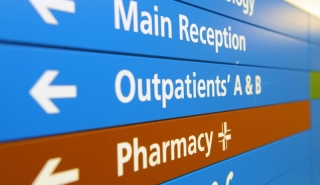Getting healthy before undergoing complex abdominal wall reconstruction (CAWR) surgery reduces the risk of complications and improves your recovery. The process is known as 'pre-optimisation' or 'prehabilitation' and involves making specific lifestyle changes to ensure your body is in the best possible condition before surgery.
Why prehab matters
Research has shown that patients who take steps to improve their health before surgery experience fewer complications, such as infections and wound breakdown. By optimising your health, you reduces the risk of complications, leading to a smoother and faster recovery.
Prehab focuses on
Smoking
Quitting smoking at least four to six weeks before surgery significantly enhances lung function and reduces the risk of post-operative complications. We will support you in giving up smoking.
Weight management
Achieving a healthy weight decreases your risk of both general and specific complications during and after surgery. Our team can provide guidance on safe and effective weight loss strategies.
Diet and nutrition
Good nutrition is vital for healing and recovery. Whether you need to gain or lose weight, eating a balanced diet helps ensure your body is ready for surgery.
Physical activity
Regular exercise improves your fitness and muscle strength, helping your body cope better with surgery and recovery.
Diabetes control
Maintaining stable blood glucose levels is important for reducing the risk of infections and other complications.
Alcohol reduction
Reducing alcohol intake improves liver function, helps you achieve a healthy eight, and supports better overall recovery.
Mental wellbeing
Maintaining a positive outlook and managing stress can significantly impact your recovery, making mental wellbeing a key part of pre-optimisation.
Prehabilitation course
We may offer you a rehabilitation course as part of our commitment to your treatment and recovery. This program, supported by our dedicated rehabilitation team, involves a series of weekly exercise classes designed to improve your fitness before surgery.
Useful resources
For more detailed guidance on preparing for surgery, you can refer to the following patient information leaflets:
These resources provide comprehensive information on how you can make the necessary changes and where to seek additional support.








